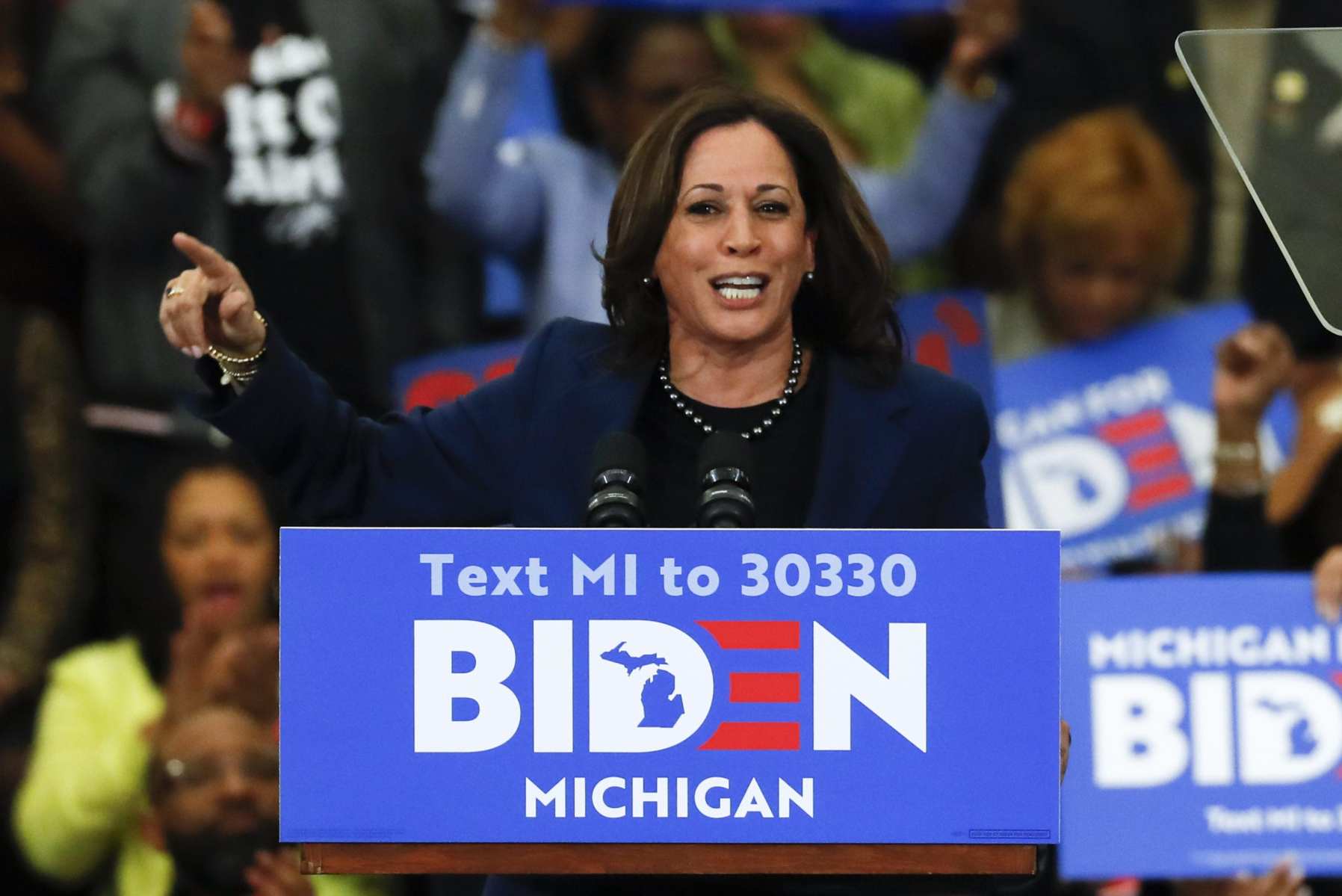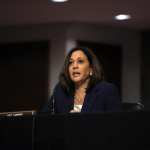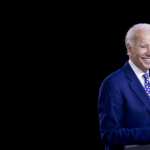This week saw both the path to the Democratic nomination for a woman close — Hawaii Rep. Tulsi Gabbard, the last of the historic six female candidates running for president, dropped out — and a debate-stage pledge from former Vice President Joe Biden, the now-likely nominee, that he would choose a woman running mate.
The dual developments have fueled speculation about who Biden might select, and while such an announcement usually comes on the eve of a party’s national convention, the unusual nature of the 2020 presidential election cycle has thrown the process into uncertainty and sped up the conversation.
The coronavirus pandemic may have also shifted the criteria, said Lis Smith, former campaign manager for ex-2020 candidate Pete Buttigieg.
“The current circumstances really put a premium on competence and experience,” said Smith. “This has shifted the conversation from ‘Who can excite people?’ to ‘Who is going to be ready on Day One to handle a national crisis?’”
The potential candidates
While women are the majority of the U.S. population and American electorate, there has never been a woman president or vice president. Biden left the door open for at least one of those possibilities on Sunday when he said during the 11th Democratic primary debate that he would choose a woman to serve as vice president if he becomes the party’s nominee, and that his cabinet would be equally representative. Biden has also promised to nominate a Black woman to the U.S. Supreme Court if elected.
In interviews, House Minority Whip Jim Clyburn, a key Biden surrogate, said he is urging the former vice president to choose a Black woman as a reward to the voters who were crucial to Biden’s remarkable primary comeback.
Clyburn publicly cited several choices whose names have been rumored for months as potential picks:
- Sen. Kamala Harris of California
- Rep. Marcia Fudge of Ohio
- Rep. Val Demings of Florida
- Stacey Abrams, the 2018 Georgia Democratic gubernatorial candidate
- Mayor Keisha Lance Bottoms of Atlanta
- Susan Rice, a former National Security Advisor
Former presidential contenders Sen. Amy Klobuchar of Minnesota and Sen. Elizabeth Warren of Massachusetts are also frequently mentioned.
All but Abrams and Warren have endorsed Biden.
As former vice president to the country’s first Black president, Biden has unique insight into the role and an appreciation for a diverse ticket that will likely factor into his decision, said activist Jess Morales Rocketto, who does work with the National Domestic Workers Alliance and Care in Action.
“He has a lot of expertise in terms of what a vice president should do,” she said. “If he follows that vision for his own presidency, that is someone who is unquestionably loyal, an extremely visible lieutenant but very much behind and on the side, who offers expertise but is a closer partner and a clear second.”
Smith predicted that governors could increasingly factor into the veepstakes conversation as voters look for executive experience, and said Gov. Gretchen Whitmer of Michigan (who endorsed Biden ahead of the state’s primary this month), Gov. Laura Kelly of Kansas or New Mexico Gov. Michelle Lujan Grisham, the first Democratic Latina governor in the U.S., could all be contenders.
The pros and cons
Rocketto described Bottoms, the Atlanta mayor, as “a loyal soldier” and “proven hustler,” but said it may be too large of a leap given her competition.
“She could be used well in a Biden administration, but not necessarily as a VP,” Rocketto said.
Harris, who dropped out of the presidential race in December, is an effective senator with a future in the party with potential parallels to Biden’s own trajectory: She could raise her profile in an administration in a way that positions her for another presidential run.
“She could be all kinds of things: attorney general, Supreme Court nominee … she’s just so clearly accomplished that I think people want to make sure she’s utilized in a new Democratic administration in some way,” Rocketto said.
A potential downside to adding Harris to the ticket: As a candidate, she was a frequent target of disinformation campaigns meant to undermine her qualifications.
“There’s a whole apparatus that’s already built to discredit her. That would continue,” Rocketto said.
In the experience department, Smith said “no one’s stock has dropped more” in recent weeks than Abrams, who previously served as Democratic leader in the Georgia House but has not served at the federal level or been elected statewide after narrowly losing her Georgia gubernatorial bid in 2018.
“While there’s no doubt that she should have a prominent role in a Biden administration, it’s harder to make the case for her when it’s clear that the Trump administration’s handling of the crisis is going to be at the forefront of so many voters’ minds,” Smith said.
The current circumstances really put a premium on competence and experience.”
Lis Smith, former campaign manager for ex-2020 candidate Pete Buttigieg
Aimee Allison, founder of She the People, a national organization focused on social justice and voter turnout for women of color, disagreed, saying Abrams would make an excellent choice.
“She knows how to build a multiracial coalition and expand the electorate,” said Allison. “She would lend critical expertise and know-how in building a winning general election campaign.”
Expanding the electorate
Allison said Biden cannot pick a White running mate and that Klobuchar in particular would not help the ticket.
“She does not move us,” Allison said of women voters of color. “She can’t do the things a vice presidential pick should do in this moment, which is to build bridges between different wings of the party, or represent a different demographic or regions of the country.”
For those reasons, choosing Abrams or Demings from the South, or Fudge from the Midwest, makes sense, said Allison.
“Black women are well-placed to be powerful running mates,” she said. “We have an opportunity in this moment to do the strategic thing. The path to victory is to increase the turnout of women of color in key states that Trump won last time.”
Black women are the most loyal and consistent Democratic voters, and exit polls showed 94 percent of them voted for Hillary Clinton in 2016, compared to 53 percent of White women.
The importance of national profile
At 77, if Biden were the Democratic nominee and eventual president-elect, he would be the oldest president sworn in on Inauguration Day at 78, which could also factor into whom he might choose, said Democratic strategist Adrienne Elrod.
“Biden’s campaign hasn’t said this, but I think it’s understood that having somebody who could walk into that Oval Office if something were to happen to him is an important attribute,” she said.
That Harris has already been tested on the national stage as a former presidential contender is a plus, Elrod said.
“There’s not a whole lot of new information that could be out there,” she said. “She didn’t do as well as many people thought she would’ve done in the primary, but she is somebody who people admire and who voters believe can do the job.”
Abrams and Demings are less well known nationally, though both have had high-profile headlines that have helped with name ID.
“People know of her, but they don’t know a whole lot about her,” Elrod said of Abrams. “She plays very well with the far-left base of the party. She could pull in some of the Bernie Sanders voters that might not normally support Joe Biden.”
Demings’ performance as an impeachment juror earlier this year grabbed attention, and her resume — she previously served as Orlando’s police chief — and record could be an asset to Biden, Elrod said.
Harris, Abrams or Demings are all in the right age range, Elrod noted, adding that the charismatic trio brings different strengths and unique experiences to the role.
“We’ve got such an embarrassment of riches” of eligible women of color, Elrod said, which is why options like Warren or Klobuchar might be overlooked.
“If there weren’t women of color who were qualified, it would be different,” she said. “But there are.”






